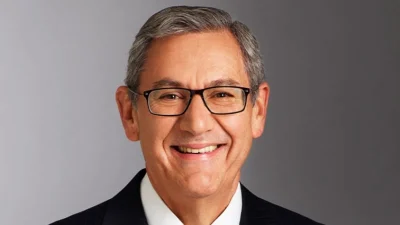AXA platform and super flows take a hit




|
| Andrew Penn
|
AXA Asia Pacific’s push into the self-managed superannuation funds (SMSFs) market has helped it offset set a decline in net flows into its platforms, including its North product.
However, the company’s chief executive, Andrew Penn, has claimed his business is in good shape for its merger with AMP after reporting an 11 per cent decline in net profit after tax and non-recurring items to $601.6 million.
The result was based on a 3 per cent increase in group operating earnings, with the board declaring a final dividend of 9.25 cents per share.
The result was announced to the Australian Securities Exchange (ASX) at the same time as consultants Grant Samuel confirmed the merger transaction with AMP was fair and reasonable and in the best interests of AXA Asia Pacific minority shareholders.
The results announcement to the ASX revealed that gross inflows to platforms were down 9 per cent with net flows down 43 per cent, reflecting lower sales of North, which had been partially offset by higher inflows into the Summit and Generations platforms and increasing penetration into the self-managed superannuation market by Multiport.
It said group risk was down 8 per cent, reflecting fewer successful tenders in 2010 relative to the previous year, while gross inflows into AXA's superannuation and pension products were down 10 per cent.
Penn said the result was strong after taking account of the impact of the strengthening Australian dollar.
"After more than a year of ownership uncertainty, I am very pleased with the professionalism and focus of our teams and the exceptional performance of our businesses," he said. "The AXA APH operations are well positioned to continue to grow, and we will be handing our businesses over in good shape once the merger with AMP and the sale of the Asia business to AXA SA is approved."
Looking at the Australian operation, Penn said that operating earnings were up 8 per cent against a background of cautious investor sentiment and continued uncertainty regarding the future regulatory environment.
"We have maintained our strong product development program during 2010 in both wealth management and financial protection," he said.
Drilling down on the AXA announcement, it revealed that wealth management earnings were up 40 per cent to 63.6 per cent, while financial protection was down 10 per cent to $75.9 million.
However, it also revealed that Australian wealth management inflows were down 9 per cent to $7.45 billion, with AXA wealth management gross inflows down 17 per cent to $6.31 billion.
It said total wealth management net flows, including AllianceBernstein, were up $3.21 billion.
Looking at advice, the company said gross inflows were down 14 per cent to $1.94 billion, with net flows down $1 billion, reflecting both investor uncertainty and a reduction in Genesys' adviser numbers.
Recommended for you
The two funds have announced the signing of a non-binding MOU to explore a potential merger.
The board must shift its focus from managing inflation to stimulating the economy with the trimmed mean inflation figure edging closer to the 2.5 per cent target, economists have said.
ASIC chair Joe Longo says superannuation trustees must do more to protect members from misconduct and high-risk schemes.
Super fund mergers are rising, but poor planning during successor fund transfers has left members and employers exposed to serious risks.











